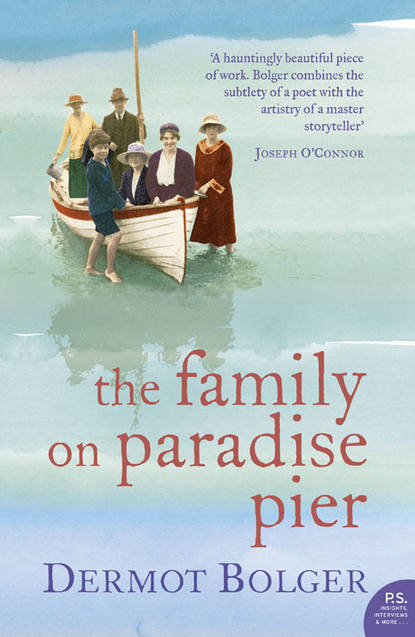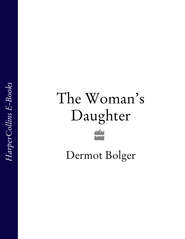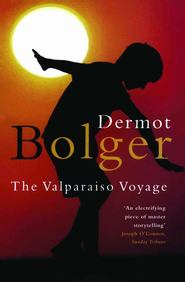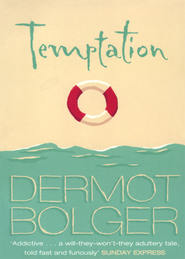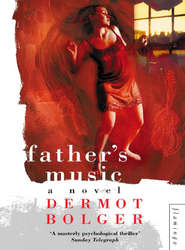По всем вопросам обращайтесь на: info@litportal.ru
(©) 2003-2024.
✖
The Family on Paradise Pier
Настройки чтения
Размер шрифта
Высота строк
Поля
The front door opened and Maud’s mother stood waiting to comfort her daughter. Father and son watched them embrace and disappear indoors. Glancing down the empty street Mr Tim felt a disconcerting sensation of being watched. He went inside where his son followed him into the study.
‘Are your two chums back yet?’
‘Last night one wanted to know where we kept the guns. He couldn’t believe that we don’t have a single one in the house.’
‘I’ve always hated shooting. However if they want to go hunting birds I’m sure we can arrange it with a neighbour.’
‘He meant guns for protection.’
‘Protection?’ Mr Tim smiled. ‘What does he expect, our neighbours to rush the house? Still I shouldn’t laugh. This trouble in Dublin is disconcerting. Such madness, with Irishmen already dying every day in France.’
‘Maybe that’s the problem. They’re dying in the wrong land.’
‘The problem, Art, is that they are dying at all. War solves nothing and cleanses nothing. It just leaves more bitterness waiting to spill over again.’
‘The fighting in Dublin is different,’ Art argued.
‘In what way?’
‘No one is forcing them to fight. There is no officer to shoot anyone who turns back. That’s one of the tasks they prepare the older boys for in school. That and being first out from the trench with a drawn sword to spur on your men to follow.’
‘You like your school, don’t you?’ Mr Tim probed. ‘I mean you’re popular, you have good chums.’
‘Some times I feel totally at home there. Other times I think I don’t fit.’
‘Being Irish can make you feel that.’
‘It’s not being Irish.’
‘What is it then?’
‘I don’t know.’ Art struggled for the words. ‘One to one I like most chaps there. Even the teachers are good eggs when not being jingoistic. But…sometimes when they are all gathered together…I find myself hating them. I hate their superiority, the sense of their absolute right to rule.’
‘The English have that,’ Mr Tim agreed. ‘Even our friend Mr Hawkins – poor man – is unshakeable in his self-belief. But they cannot be blamed for being what they are, any more than a fox can be blamed for being a fox.’ His father paused. ‘Maybe there’s something else you hate?’
‘What?’
‘Maybe you see the same qualities buried inside you. I mean no offence, but when asked to describe what we least like in people we often end up inadvertently describing ourselves.’
‘I’m not like my fellow students,’ Art stated angrily.
‘I know. But maybe deep within yourself you see a seed which, if not careful, might one day make you become like them. They will all find jobs ruling the Empire when this war ends. If that is what you want then doors will also open for you. Ffrench went to a poor school, yet see how well he is forging ahead. Imagine what you could do with your contacts.’
‘Is that why you sent me to Marlborough? What you want?’
‘I wanted to give you the best education I could afford. After that I merely wish you to be happy. I disappointed my father, our cousins too. They wanted me to achieve things. One said that I was a lotus-eater, lacking ambition, hiding away in my own little paradise here. But my ambitions were different from theirs. Perhaps I am inventing excuses and I have been a failure, but only on their terms. Because I never accepted their right to put their ambitions on my shoulders, I have no right to place my ambitions on yours. I’m merely saying that you may be afraid of being contaminated by the outside world. My days in Oxford were the loneliest time in my life. Young men boorishly drinking in societies. Grandpappy claimed that I ran away and I needed to toughen up to survive in the world. But I didn’t want to toughen up because something inside me would have died. You’re different. You have steel. Find your own path and stick to it.’
‘What if you don’t like my path?’
Mr Tim stared at the brooding portrait of Martin Luther. ‘The one thing I wish to give all of you is a conscience. If you trust to your heart you will not go wrong, no matter how others may judge you. Go and see if your chums are back. I want to finish something before I dress for dinner.’
Art left Mr Timothy Goold Verschoyle alone. Upstairs Maud would be crying, comforted by her sister and mother. Thomas would be glad all his siblings were home because he seemed happiest when they were all together. Brendan was probably reading in his den in the coach house. Of all his children Brendan was the one Mr Tim knew least about. He spent many evenings walking with the boy, but it was never fully clear what Brendan felt. Being so young, he made the others seem grown-up. Opening a drawer, Mr Tim took out new lyrics for the latest song cycle he was composing. The villagers thought his music remarkable. Neighbours often said how much they enjoyed hearing the sound of his piano filtering out onto the street. But no orchestra had yet played a single composition. Music companies returned his compositions with polite notes of refusal. But still he pressed on, motivated by a desire to bring beauty into this world or, maybe at a subconscious level, to feel some vindication in succeeding to prove his cousins wrong.
In Dublin now rebels were fighting behind barricades, with buildings shelled and slum dwellers looting amid the corpses of horses and soldiers. Boys trapped on barbed wire in no-man’s-land in France were screaming for comrades to end their agony with a bullet. Rats grew fat on corpses. Young Oliver Hawkins’s body might never be found. Mr Tim remembered how handsome Oliver had looked last summer. What must it be like to lose a son? He prayed that this war would end before his boys were old enough to be drawn in and that the Dublin madness would end without too many deaths. Scrutinising the lyrics he wrote this morning, they seemed a feeble pastiche of his favourite poets. At heart he knew this cycle would fare no better than the others, but still he worked on, knowing that these imperfect songs were the only poultice he could offer the world.
THREE Four Thousand Lamps (#ulink_47bfcf24-4464-57df-9d13-3eab342d62ba)
December 1917
Local Catholics had such long memories that Mrs Ffrench was careful not to betray any hint of proselytism about her activities. Older people still cursed the visiting Protestant clergymen who had tried to steal souls during the famine by offering soup to any starving wretch lured into attending their church services. Last year a Dublin Protestant was sacked after his Catholic employers discovered how he served tea each Sunday at the Free Breakfasts for the Poor Protestant Missionary Charity. Mrs Ffrench thought that it was easy for her fellow Baha’is in America to advocate Baha’i children’s parties as vehicles by which children of different social classes might learn to intermingle and be gently taught the truth, but in this remote part of Donegal any form of preaching was dangerous. Her husband might not think so, because Commodore Ffrench feared nothing. But, with the Bolshevik unrest in Russia, his leave was cancelled and, without him, their house felt empty and the winter hills desolate.
Still, with a war on it was unpatriotic to look glum. There was much that a woman could do. Last week Mrs Goold Verschoyle had hosted a Red Cross musical evening, attended by many young officers from the warships anchored in Killybegs Harbour. Mrs Ffrench had invited several to dine in Bruckless House, impressing them by her knowledge of Northern Russian ports. Not that Commodore Ffrench ever divulged naval secrets, but his last letter had been filled with a boyish excitement about his latest mission. The northern route into Russia was always important as a line for supplies to be ferried into the ice-free port of Murmansk and sent on by rail to St Petersburg. However it had been an unglamorous naval backwater until the recent revolution in Russia, when it now became vital to prevent Murmansk and Archangel falling into the hands of the dangerous Bolsheviks who had seized power. This was the moment of destiny which her husband had been waiting for. Over dinner the officers had agreed that if he could help to fight off the Bolsheviks and hold these ports he would return a hero.
When the Tsar abdicated in February nobody suspected that the Bolsheviks would seize power – indeed few people, including Mrs Ffrench, knew much about them. But the world was out of kilter in these days of incessant bloodshed, with nothing predictable. The Dublin rebels – booed off the streets last Easter, with James Connolly and the other leaders executed – had recently been welcomed home from internment camps like returning heroes instead of hooligans who had levelled their own city. Mrs Ffrench was glad to have a Baha’i spiritual master like Abdul-Baha to make sense of these changes. His instruction was to spread light and human fellowship through every class and creed she came in contact with.
This was her intention behind today’s party. Every child from Bruckless and Dunkineely was invited. The attendance – smaller than she hoped for – was a curious mix, with prosperous Protestant children who were used to enjoying her gardens mingling uneasily with a few local poor Catholics. The better-off Catholic tradesmen had kept their children away. They liked the notion of their offspring taking refreshment with the gentry on her lawn, but not if they had to mix with their own lower social classes.
At first there was little mixing, as Protestant children formed one clique and the Catholics another, too ill at ease to enjoy themselves. She suspected that some Catholics had never attended any type of party, let alone an afternoon one. For a terrible moment she even envisaged a fight breaking out, a miniature re-enactment of the riots in Moscow. The servants were thinking this too, from the way they whispered to each other, but then the arrival of Eva Goold Verschoyle put everyone at ease because children from all creeds were comfortable with her.
Although Mrs Ffrench told people that every child was always welcome at Bruckless House, few ever called. Yet she never visited the Goold Verschoyle household without seeing village urchins wandering freely about the tennis court or sitting with Eva in the old coach house, taking turns to use her paints and brushes, laughing with their hands streaked in watercolours. Eva quickly became the centre of the party now, not even conscious of how she drew the children into the games she suggested. Perhaps it was her size, with many children towering over her. Or maybe it was her aura. At fifteen, Eva was older than her years in some respects, yet far younger in others.
Soon Mrs Ffrench found herself peripheral to her own party, a bystander who would love to swing a four-year-old girl around like Eva did or have toddlers cluster about her skirt while she told stories. She kept trying to mingle and talk to each guest but a glass wall existed with the village children that she could not break down.
Still, she loved the sounds of laughter and was delighted at having risked holding the party outdoors during the few hours of winter sunlight. There was real Baha’i happiness by the end as children relaxed with each other. Village children waved as they walked away in clusters, with the Protestants being collected in ponies and traps. Finally only she and Eva were left, excitedly discussing the party on a sofa in the library while, outside, serving girls cleared away the mess on the lawn.
She offered to have her man drive Eva home, but Eva insisted that she loved the two-mile walk in twilight. Mrs Ffrench knew that she would be safe because something about the child’s innocence suggested that Eva could not be hurt so long as she never left Donegal. Eva sympathised at how lonely Christmas would be in Bruckless House with Mr Ffrench away and asked would the Hawkins family ever come back to visit.
‘I suspect not, dear. Bruckless holds too many memories. These days a lot of ghosts sit on empty chairs at dinner. It would be hard for them not to keep seeing Oliver in their minds swimming down at our pier.’
Mrs Ffrench stopped, surprised by her tears. Grief was a sly thief always waiting in ambush. She had thought she was over the worst of the anguish at losing her two brothers, but last month’s news that her sister’s husband had also been killed had brought back her dreams of blood. When she woke some nights now she was afraid to touch the sheets, having dreamt that they were saturated in blood. She hated the three-card-trickery of these insidious dreams. In them she could be back with her brothers in their nursery, watching them play with boxes of tin soldiers. Next moment they would be wading through barbed wire and foxholes where dying men screamed, still only boys holding their tin soldiers, oblivious to danger. Then they would become her own unborn sons walking towards the German guns, not hearing her screaming to warn them until they were shot and fell. She always woke with a start from such dreams, her hand instinctively reaching down between her legs where she bled every month whether her husband was home on leave or not. Five years of marriage, stained by unwelcome blood. The Commodore had devised a code so that she could send him news after each visit home. They had names chosen if it was a boy or a girl and a locked room set aside to be a nursery. At thirty-one she was still young enough. When his victory at Murmansk was achieved, he would come home for them to try again, as often and with as much passion as it took. To compensate for all the deaths, her first child would be a boy.
Mrs Ffrench became aware of tears also in Eva’s eyes.
‘Don’t mind me being silly, dear.’ She put her hand on the young girl’s arm.
‘Sometimes I blame myself for Oliver dying,’ the girl said. ‘You see, Mrs Ffrench, I didn’t want his family to come back because of Beatrice. I wanted to keep Art to myself. It’s just too terrible how I got my wish.’
‘You can’t blame yourself, child. Thousands of boys are slaughtered every week. Men will have to answer to God for this one day, but you have nothing to answer for.’
Something about the wide-eyed fifteen-year-old reminded Mrs Ffrench of herself at that age. Eva would also be a seeker after truth. Mrs Ffrench remembered how isolated she had felt as a girl until she stumbled by seeming chance upon a reference to Abdul-Baha and his beliefs. Now she knew that The Master had been guiding her life on a quest to find a man sufficiently open to embrace her beliefs. Her conversion of the Commodore meant that there were now four Baha’is in Ireland. She wanted to thrust copies of World Fellowship and other Baha’i publications into Eva’s hands but each seeker needed to find their own path. Instead she decided to let the girl share The Master’s work in a different way.
‘Will you help me light my lamps?’ she asked, knowing that Eva loved this task.
‘Yes, please,’ the girl replied.
Dusk had set in already. The lamps could not be seen from the road where they would attract attention but any walker by the pier would see them shine in eleven windows. This was a vital task and some nights Mrs Ffrench woke, fearful that one might have burnt out while she slept.
The greatest moment of her life was travelling to London this spring to meet Abdul-Baha in person. She could still see the Master’s piercing eyes as he announced that she could cause the illumination of all Ireland if she lit four thousand lamps in one year. Mrs Ffrench had broken this down to mean eleven lamps to be lit on three hundred and sixty days and just eight lamps on the last five nights. Initially she felt foolish, knowing that the servants considered her behaviour odd, but recently they seemed to understand because they smiled when passing her each evening, as if silent conspirators. She took it as a sign that the Master was right. If the lamps were having this effect in her home, then perhaps they were spreading harmony in other houses across Ireland without her knowledge. The maids knew to fill each lamp full of oil but never to light them. That was her strangely comforting task. But tonight she let Eva help, walking from room to room through the empty house.





